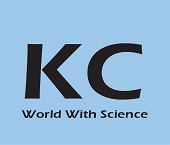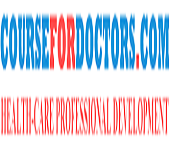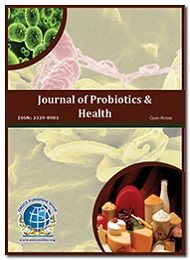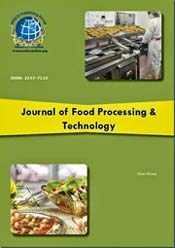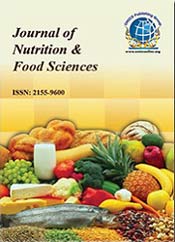Theme: Healthy food be the Medicine, Great approach to make diseases free World.
Nutri Food 2019
About Nutri Food 2019
After the marvellous success of “World Congress on Food and Nutrition” held at Dubai, UAE during Dec 10-12, 2018, we proudly announce the "2nd World Congress on Food and Nutrition” programmed in Helsinki, Finland during October 21-22, 2019, with the innovative ideas of "Healthy food be the Medicine, Great approach to make diseases free World.”
Nutri Food 2019 is one of the leading community based events of its kind bringing together professionals in the field of Food Science and Nutrition, Health sciences from around the globe representing all branches of the Food Science and Nutrition, Health sciences researches, technology, developments, equipment all joining with the intention to encourage and transform mutual knowledge into innovative solutions to help assess our planet’s health & sustainability with best food and nutrition.
Nutri Food 2019 focuses more on recent advancements in the field of Food Science, Nutrition and Health Sciences in treating the world with healthful eating habits. We welcome you to join us in the mission & take a step ahead along towards finding the greatest approach to create a disease free world.
The conference organizes encompass current keynote lectures, session presentations, poster sessions, young researcher sessions from the distinguished scientists, researchers and brilliant students across the globe creating a platform for information exchange and knowledge transfer. The lectures were designed on current and emerging areas of food and nutrition research which include Animal & Plant Nutrition, Clinical Nutrition, Current Advances in Food Science, Nutrition, Food & Nutritional Disorders, Food & Nutritional Immunology, Food & Nutritional Metabolomics, Food & Nutritional Toxicology, Food Safety, Human Nutrition & Dietetics, Nutraceuticals & Medicinal Foods, Nutrition and Dietetics, Nutritional Epidemiology & Malnutrition, Obesity, Diabetes & Endocrinology, Pediatric & Maternal Nutrition, Probiotics & Prebiotics Nutrition, Renal Nutrition & Metabolism, Women Health and Nutrition. This 2nd world Conference on Food and Nutrition moreover enables the dynamic speculation of energetic understudy investigators as we are encouraging Poster Award Competition and Young research Forum at the gathering set.
Why to attend?
Nutri Food 2019 event shall lay a platform for the interaction between specialists around the world and aims to accelerate scientific discoveries creating the conference an ideal platform to share expertise and assess rising technologies across the world.
With members from around the world focused on learning about Food Science, Nutrition and its advancement so this is your best opportunity to reach the largest assembly of participants of the Food Science and Nutrition. This conference seeks to bring all such scientists, Noble Laureates, researchers, research scholars, students and people together who are involved in Food Science and Nutrition ground and provide them to deliberate about their unique innovation, sharing concepts and interaction with each other. Nutri Food 2019 could be an exceptional event that brings along a novel and International mixture of Food science techniques and technology, Nutrition. World-renowned speakers, the most recent techniques, tactics, and the newest updates in Food Science and Nutrition fields are hallmarks of this conference.
Who Attends?
- Nutritionists
- Fitness experts
- Food Microbiologists
- Food Technologist
- CEO's and R&D Heads from Food Industries
- Registered Dieticians
- Academicians
- Agricultural engineers
- Agriculture, Food and Aquaculture Industries
- Biologists
- Clinical Nutritionists
- Food chemists
- Food engineers
- Food Industrialists
- Food laureates
- Food safety officers
- Food scientist and researchers
- Food technologists
- Individuals involved in Food Microbiology, Biotechnology, Nanotechnology, and Food related fields
- Industrialists
- Students
Track 1: Animal & Plant Nutrition
Food is the essential thing for both plant and animals to survive. Plants are Autotrophic; they prepare their own food providing some of it to other organisms. Whereas Animals are Heterotrophic, they cannot build their food inside themselves and intake from other plants or animals. One makes its own food and one depends on other for food. Plants require light, water and about 20 elements known as essential elements to meet all their biochemical needs. Some plants cannot produce their own food and must obtain their nutrition from outside sources these are parasitic or saprophytic. Some plants are mutualistic symbionts, epiphytes, or insectivorous. Most animals take their nutrients by the ingesting of other organisms. The molecules necessary function for animals are amino acids, lipid molecules, nucleotides, and simple sugars and the food consumed consists of protein, fat, and complex carbohydrates. Animals convert these macromolecules into the simple micro molecules essential for keeping cellular functions. The conversion of the food consumed to the nutrients involves digestion and absorption. During digestion, food particles break down into smaller components, and later they are absorbed by the body.
- Consumer trends and nutritional behaviors
- Animal and plant nutrient sources
- Modes of nutrition
- Vegetarian, vegan and other dietary systems
- Minerals required by plants
Track 2: Clinical Nutrition
Clinical nutrition is nutrition required for patients with medical concerns. Clinical refers to the management of patients, including not only outpatients at clinics, but also (and mainly) inpatients in hospitals. Basically it incorporates the scientific areas of nutrition and dietetics. Clinical nutrition plays a major role in disease prevention. It joins mainly the scientific fields of nutrition and dietetics and aims to keep a healthy energy balance in patients, as well as providing sufficient amounts other nutrients such as protein, multivitamins, and minerals. The chief aim for clinical nutrition is to maintain a healthy energy balance in patients, as well as providing sufficient amounts of nutrients such as proteins, minerals and vitamins. Nutritional Assessment, Parenteral nutrition and Nutrition Physiology comes under clinical nutrition.
- Role of nutrition in prevention of disease
- Nutrition physiology
- Nutritional assessment
- Nutrition and cardiovascular health
- Oncology nursing
- Complications- trouble shooting and follow up
- Considerations during intensive care
Track 3: Current Advances in Food Science, Nutrition
Advances in Food and Nutrition counter to the rising requirements of the consumers and the different issue that emerge due to an improper or insufficient intake of food and nutrition. There are various researches in Advanced Food Processing Technologies that are being developed which incorporates genetically modified food and 3D imprinting in food.
- Food and drug analysis
- Chemical analysis of food
- Laboratory analysis
- Dietary management
Track 4: Food & Nutritional Disorders
Nutritional Disorder is caused by insufficient consumption of food or of certain nutrients, by an inability of the body to absorb. In other words Nutritional deficiency disorders may include inadequacies or overabundances in the diet, weight gain and dietary problems, and incessant illnesses, for example, cardiovascular infection, hypertension, disease, and diabetes mellitus. Wholesome sicknesses additionally incorporate formative variations from the norm that can be counteracted by abstain from food, innate metabolic issue that react to dietary treatment, the association of nutrition and supplements with food allergies and intolerances, drugs, and potential perils in the food supply.
- Iodine deficiency disorders
- Vitamins and mineral deficiency disorders
- Food borne allergy and intolerance
- Iodine deficiency disorder
- Food allergy and intolerance
- Toxin in food
- Life style related disorder
Track 5: Human Nutrition & Dietetics
Nutritional science deals with the effect of the food we consume on our bodies, while dietetics applies the science of nutrition to the prevention and treatment of disease and the promotion of health. Dieticians assess, diagnose and treat diet and nutrition problems at an individual and wider public health level. They use up-to-date public health and scientific research on food, society, health and disease, which they translate into practical guidance to enable people to make appropriate lifestyle and food choices. The team’s expertise in public health nutrition, clinical and community dietetics, health promotion and sports nutrition helps to inform our teaching on a wide range of modules across several programs in nutrition and dietetics.
- Diabetes diet
- Autoimmune disorder
- Diabetic ketoacidosis
- Gestational diabetes
Track 6 : Food & Nutritional Immunology
Food & Nutrition affects the immune system of our body which can regulate the health, metabolism & diseases control of an organism. A balanced diet keeps the body to fight against the diseases. The immune system is observed by the Antibodies & Immunoglobulin whereas nutrients play the key role in the build-up process. For periods, people have instinctively known that the better they eat, the healthier they are. The science of Nutritional Immunology studies distinct foods on a molecular level, and how they affect human health at a cellular level.
- Moleculer nutritional immunology
- Neuroinflammation
- Medical value of Cordyceps Sinensis
- Healthy aging
Track 7: Nutraceuticals & Medicinal Foods
Food acts as medicine which helps the body to prevent some diseases. The food that we consume in diet play a vital role in controlling inflammation levels helps the digestive organs to process and eliminating waste, balancing blood sugar, controlling blood pressure and cholesterol level (cardiovascular health) and many more. Medicinal food includes anti-inflammatory foods and anti-inflammatory components of certain foods and herbs are linked with lowered inflammation. The Healing diet begins with a high menu in vegetables, fruits, sprouted seeds rich in omega-3, fruits, wild meats and these anti-inflammatory foods can prevent the way inflammation affects our bodies and our lives. The healing foods diet will introduce you into a total health transformation and this diet is designed to help overcomes from diseases like Diabetes, Heart Disease, Digestive disorders, Fatigue, Depression, Hormone imbalance, and Cancer prevention. The major groups of anti-inflammatory foods are green leafy vegetables, walnuts, coconut oil beets, broccoli, fruits like pineapple, blueberries, salmon etc.
- Bioactive nutraceuticals
- Organic herbs
- Role of medicinal food in nutrition
- Anti-inflammatory foods
- Healing food diet
Track 8: Food & Nutritional Metabolomics
Unlike other ‘omics’ technologies (genomics, proteomics…etc.), metabolomics gives organic understanding that mirrors an individual's one of a kind hereditary unique mark, as well as way of life, eating routine and environment. Utilizing metabolomics, scientists can quantitatively separate non-hereditary variables that are comprised in post genomic and posttranscriptional change. Foodomics has been recently defined as a new discipline that studies food and nutrition domains through the application of advanced omics technologies in which MS techniques are considered indispensable. Applications of Foodomics include the genomic, transcriptomic, proteomic, and/or metabolomic study of foods for compound profiling, authenticity, and/or Biomarkers related to food quality or safety; the development of new transgenic foods, food contaminants, and whole toxicity studies; new investigations on food bioactivity, food effects on human health.
- Metabolomics of genetically modified crops
- Metabolomics in nutrition research
- Dietary metabolites and cellular metabolism
- Nutrigenomics and plant functional genomics
- Food safety and contamination assessment using metabolomics
- Applications of metabolomics to food processing
Track 9 Dietary managements and Nutrition
The food we eat has a significant impact on our health, change in diet can help avoid or control many health problems like obesity, diabetes and certain risk factors for cancer and heart disease. Dietetics is the science deals with how food and nutrition disturbs human health. Dietetics has a strong prominence on public health. Dietician nutritionists apply nutrition and food science to help people progress their health and provide care and consultation to patients. A balanced diet is a cornerstone of health. All the age of people should enjoy a variety of healthy foods from all of the foods groups, including whole grains, fruits, vegetables, healthy fats, low-fat or fat-free dairy and lean protein. But women also have special nutrient needs (women’s diet and nutrition) and, during each stage of a woman's life, these needs change.
- Nutritional requirements
- Diet in women
- Pediatrics diet
- Dietary fats
Track 10: Food & Nutritional Toxicology
Nutritional toxicology is related to but is not synonymous with food toxicology. Food toxicology describes toxicants or toxins found in foods. Nutritional toxicology can refer to how the diet or components of the diet prevent against the adverse effects of toxicants or toxins. Every drug is a poison when taken in the higher dose. In a similar manner nutrient taken in higher doses can cause Nutrition toxicology. In general, toxicologists deal with the exogenous compounds (i.e. xenobiotic or foreign compounds) whereas Food and Nutritional Toxicologists deal with toxicants in food, the health effects of high nutrient intakes, and the interactions between toxicants and nutrients.
- Dietary effects on detoxification processes
- Metabolic and nutritional effects of ethanol
- Allergic and sensitivity reactions to food components
- Food additives and contaminants
Track 11: Nutritional Epidemiology & Malnutrition
Nutritional Epidemiology is the study of the nutritional determinants of disease in human populations. In the field of Epidemiology, Health Nutrition can be defined as: The way in which the human body reacts with diet, the extent to which the diet influences levels of health.
- Malnutrition and associated disorders
- Innovative human therapeutics
- Importance of nutrition in chronic diseases
- Gene-nutrient interactions
- Epidemiological studies on nutrition
- Malnutrition
Track 12: Food Safety
Food hygiene means to ensure the safety of food from production to consumption. Food can become contaminated at any point during harvesting, processing, storage, distribution, transportation, and preparation. Food safety includes handling, storing and preparing food to inhibit infection and to make sure that food keeps enough nutrients to have a healthy diet. So unhygienic food can also cause poor nutrition. The Food Safety Management System (FSMS) provides a preventative methodology to detect, prevent and decrease food-borne hazards. This is to decrease the risk of food poisoning and to make food safe for consumption.
- Microbiology spoilage prevention and control
- Food hygiene
- Product safety assessment of food
- Food allergies
- Importance of food safety education
- Food safety regulations and guidelines
- Foodborne illness
Track 13: Obesity, Diabetes & Endocrinology
The gastrointestinal tract plays a key role in obesity through its contributions to satiation and satiety, production of gut hormones that influence appetite, absorption of nutrients that ultimately determine the positive energy balance that results in obesity, changes in bile acids and the micro biome, and the metabolic products of microbial digestion of nutrients (short-chain fatty acids) that modify some of the metabolic factors that are associated with obesity. Obesity usually is associated with morbidity related to diabetes mellitus and cardiovascular diseases. However, there are many gastrointestinal and hepatic diseases for which obesity is the direct cause (e.g., non-alcoholic fatty liver disease) or is a significant risk factor. When obesity is a risk factor, it may interact with other mechanisms and result in earlier complicated diseases. There are increased odds ratios or relative risks of several gastrointestinal complications of obesity: gastroesophageal reflux disease, erosive gastritis, gastric cancer, diarrhoea, colonic diverticular disease, hepatocellular carcinoma, acute pancreatitis, and pancreatic cancer. Gastroenterologists are uniquely poised to participate in the multidisciplinary management of obesity as physicians caring for people with Obesity and Nutrition related diseases, in addition to their expertise in nutrition and endoscopic interventions.
- Coronary heart disease
- Stroke
- Atherosclerosis
- Damage to the circulatory system
- High blood pressure
Track 14: Maternal Nutrition
Maternal Nutrition focuses on the studies which have demonstrated that the nutritionary state of young ladies’ pre-origination (particularly body weight) has an impact on fetal development. In any case, all through physiological state, nutritionary ingestion by the mother is trusted that it doesn't have any effect all through the first and second trimesters, however maternal nutritionary admission inside the last trimester is widely accepted to have some effect on the fetal development, and in this manner Maternal and Child Health plays a vital part in the improvement and development of the fetus.
- Pregnancy nutrition
- Low birth weight prevention, control and treatment
- Childhood obesity and risk factors
- Nutritional requirements in infants & children
- Effects of malnutrition in children treatment strategies
- Childhood nutrition
- Pediatric nutrition
- Pregnancy nutrition
- Prenatal nutrition
Track 15: Probiotics & Prebiotics Nutrition
Prebiotics are the elements that come mostly from fibres, and indigestible food components that promote the growth of helpful bacteria in our gut and that human can’t digest. They help in improving gastrointestinal health as well as potentially increase calcium absorption. The fruits like bananas, onions, garlic and whole grains naturally contain prebiotics. Prebiotics comprise fructooligosaccharides and galactooligosaccharides. Probiotics are live microorganisms which when consumed may give a health benefit to the host. Certain species of Lactic Acid Bacteria (LAB) and Bifidobacterium spp. are usually used in the manufacture of probiotic products. Probiotics promote the inherited disorder, reduce lactose intolerance, decrease diarrhoea incidence, management infections, act as antibiotics, suppress tumours, and shield against carcinoma. Foods such as yogurt, kimchi, and naturally contain probiotics. A few probiotics naturally found in foods are Bacillus coagulants and Saccharomyces boulardii. Probiotics slow the growth of harmful bacteria and facilitate in maintaining the function and strength the barrier provided by intestinal walls.
Foods rich in prebiotic fibre
- Foods rich in probiotic fibre
- Difference between prebiotics and probiotics
- Health benefits using prebiotics
Track 16: Renal Nutrition & Metabolism
Diet and nutrition are important part of living well with kidney disease. Patients who are affected by kidney disease should be more concerned about their diet and should follow the special dietary plans. Diet plan will vary according to the stage of kidney disease. Dialysis clinic will have dieticians who can plan the diet of the patient. Dietician will give complete guidance about daily intake of food. Normal food plan is that: high intake of protein containing food, less salt, high phosphorous & potassium foods. They are also advised to take safe fluid intake levels. This is because extra fluid can increase blood pressure and make heart to work harder eventually increasing the stress of dialysis treatment. More amount of sodium (salt) can make thirsty and intake of fluid will be more. Foods like banana, orange, potato and dried fruit must be avoided. Evaluation of food intake, particularly protein intake is monitored at a regular periodic interval to ensure the daily intake of protein which is important part for good quality of life. Since dialysis patient follow special diet plan, their diet may miss several vitamins. Dialysis also removes some vitamins from the body. The treating physician must prescribe vitamin tablets specially made for kidney disease patients.
- Blood urea nitrogen
- Protein equivalent of nitrogen appearance (pna)
- Renal osteodystrophy
- Evaluation of nutritional status
- Hyperlipidemia
- Nutritional therapy
2nd World Congress on Food and Nutrition conference 2019 showing the worldwide analytics of significance of nourishment and its sustenance levels in respects to the worldwide study.
Importance and Scope
The significance of food and nourishment in human improvement is generally perceived in both high pay and middle to low-salary nations. Lack of healthy sustenance in the entirety of its structures adds up to a significant weight on national wellbeing frameworks as well as the whole social, social and monetary texture of countries, and is the best hindrance to the satisfaction of human potential. Putting resources into nourishment, accordingly, bodes well since it diminishes medicinal services costs, enhances efficiency and financial development and advances training, scholarly limit and social improvement for present and who and what is to come. Besides, great sustenance is a human right. Nourishment security envelops numerous rights, particularly the privilege to sufficient sustenance and to the most noteworthy achievable standard of wellbeing. It incorporates youngsters' rights to nourishment, wellbeing, and care and also survival and advancement. Other than that, it includes ladies' entitlement to fitting administrations regarding pregnancy, and the post-natal period alongside satisfactory sustenance amid pregnancy and lactation. Sustenance is perpetually vital in the light of the on-going monetary and nourishment value emergencies.Indigenous populaces in remote areas consistently find it is difficult to get to nutritious sustenance. As Indigenous people group lost access to their customary land, processed, western-style nourishments supplanted conventional nutritious eating methodologies. Frequently, the main sustenance accessible today in remote Indigenous people group is modest, prepared and exceptionally undesirable. The normal of wellbeing in urban and provincial Indigenous social orders can't recuperate without activity focusing on nourishment, numerous Indigenous people group attempting to pay for costly new sustenance. In Australia, the challenge to ensure sufficient wholesome intake for the whole populace represents a noteworthy issue. Expansive quantities of Australians encounter corpulence because of poor direction for living while others, for example, those in remote Indigenous people group, are sustenance unreliable in light of the fact that they don't approach reasonable solid nourishment.
Why Finland?
Helsinki is the capital of Finland, also recognised as “Daughter of Baltic” and the largest city and assembles on a granite peninsula on the north seaside of the Gulf of Finland, fronting the Baltic Sea. King Gustavus Vasa of Sweden located Helsinki in 1550, and in 1808 the town was encompassed in the Russian Grand Duchy of Finland. After a tremendous furnace ruined a 1/3 of the town in 1808, Carl Ludwig Engel (1778-1840) was ordered to restructure it. Population density in some parts of Helsinki's middle city area is very high of 16,494 populations per square kilometre. Main islands in Helsinki comprise Seurasaari, Lauttasaari, Vallisaari and Korkeasaari the lattermost being the site of the country's biggest zoo. Helsinki is Finland's main political, cultural, educational, research and financial, centre as well as one of northern Europe's main cities. The inner city area resides in a southern peninsula, which is rarely mentioned by its actual name Vironniemi.
Helsinki is a spectacular and peaceable capital, famous not solely for its archives and heritage but for its Old Town, seaside and archipelagos. The city presents a broad differ of historical attractions, art galleries, excursions, top museums and experiences for each person of all a long time to revel in Helsinki is an exceptional town to discover on a bike or on foot, and has an amazing open transportation device that contains of boats to the islets and trains to other locations in Finland. There are two bus tours, the Panorama Sightseeing Bus Tour which will take you on a directed commentary trip about the city, or make your very own itinerary on the City Sightseeing Hop on Hop off Buses around Helsinki and see the top sights and innovations. The Beautiful Canal Route is perhaps one of the most attractive methods to journey the metropolis from on the majestic waters, cruising past the banks and coasts.
One of the greatest famous ancient attractions in Helsinki is the UNESCO World Heritage Site, Suomelinna Fortress Island, which played a vital section in the naval records and defense under Swedish, Russian and Finnish rule. Helsinki is recognized for its elegant architecture- the whole city is a huge architectural museum. Another antique landmark no longer to be overlooked is the amazing Rock Church for its awe-inspiring architecture. Helsinki is a city easy to navigate. This is where visitors will find the country's finest architectural masterpiece from historical eras, art galleries and museums, zoo, parks, church (Temppeliaukio, Cathedral Uspenski, and Helsinki Cattedrale), amusement park, Fortress, restaurants and shopping.
Agreeing to the statistical scales of nourishment and nourishment all through the world uncovered that the unused thinks about on food and nourishment was an affiliation between eating invigorating plant-based nourishments and diminished weight pick up. Analysing information from "more than 125,000 adults over 4-year periods," the group found that individuals who ate a part of high-quality plant-based nourishment, such as entire grains, nuts, vegetables, and natural products, were less likely to pick up weight than individuals who ate a parcel of less energizing plant-based nourishment, such as fries, refined grains, and sweet. Devouring high-quality animal-based nourishments, in any case, was not related to any critical benefits for mortality. Their information outline an affiliation between making solid dietary choices for energizing, high-quality plant-based nourishments and a 40% lower mortality rate. Nearest estimation of chronic health conditions who consumed a diet rich in high-quality plant-based foods were found to benefit even more than those in the general population. Expanding high-quality animal-based nourishments, in any case, was not related to any noteworthy benefits for mortality. Their information outline an affiliation between making solid dietary choices for energizing, high-quality plant-based nourishments and a 40% lower mortality rate. Individuals with inveterate well-being conditions who expended eat less wealthy in high-quality plant-based nourishments were found to advantage indeed more than those within the common population.
The worldwide overview precedes an examination of issues related to well-being and eats less, nourishment components, nourishment generation, and food security. It too investigates modern points, such as nourishment frailty, diets and eating designs, and how consumers’ diets compare to dietary rules and master recommendations. Dietary rules have been based on the proved accessible, counting not as it were human clinical studies but moreover information accessible from exploratory animal work and physiological studies. This prove moreover incorporates data from population-based epidemiologic thinks about that have distinguished nourishment designs, supplement impalpable, and ways of life-related related with wellbeing advancement or with expanded hazard an or movement of NCDs.
Developing the valuable nutritional guidelines for tenable Health Policies: Current Status and its outcomes and children are the foremost unmistakable casualties of undernutrition. It is assessed that undernutrition—including hindering, wasting, lacks vitamin A and zinc, and fetal development limitation (when a child does not develop to its typical weight sometime recently birth)—is a cause of 3•1 million children passing’s every year or 45 % of all child passing’s in 2018. Undernutrition amplifies the impact of each infection, counting measles and jungle fever. The evaluated extents of passing in which undernutrition is a fundamental cause are generally comparative for loose bowels (61%), intestinal sickness (57%), pneumonia (52%), and measles (45%) (Dark 2003, Bryce 2005). Undernutrition can too be caused by maladies, such as those that cause the runs, by lessening the body’s capacity to change over nourishment into usable supplements.
Global Supplemental Sale Analytics
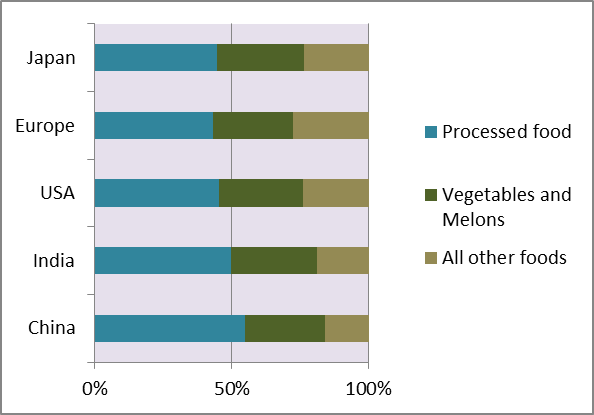
Estimation of Global product exports from 2014 to 2020
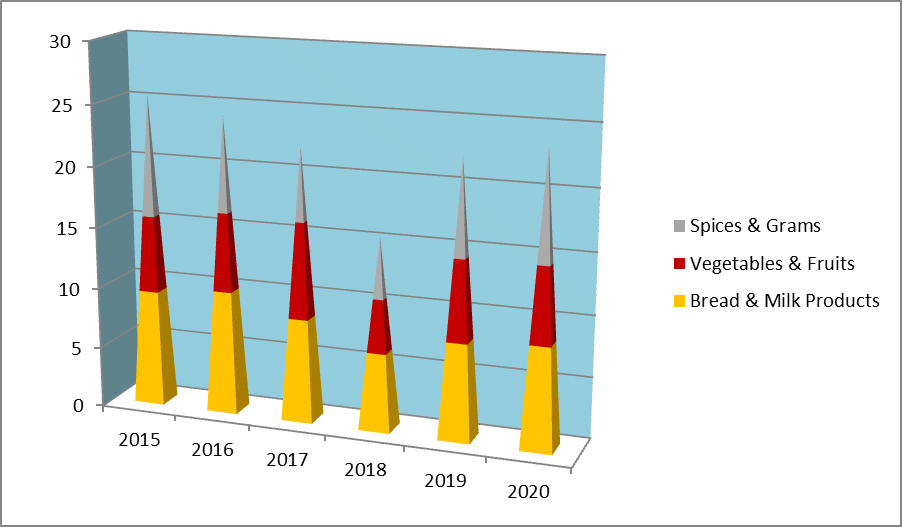
Majority of People Suffering from Malnutrition around the world
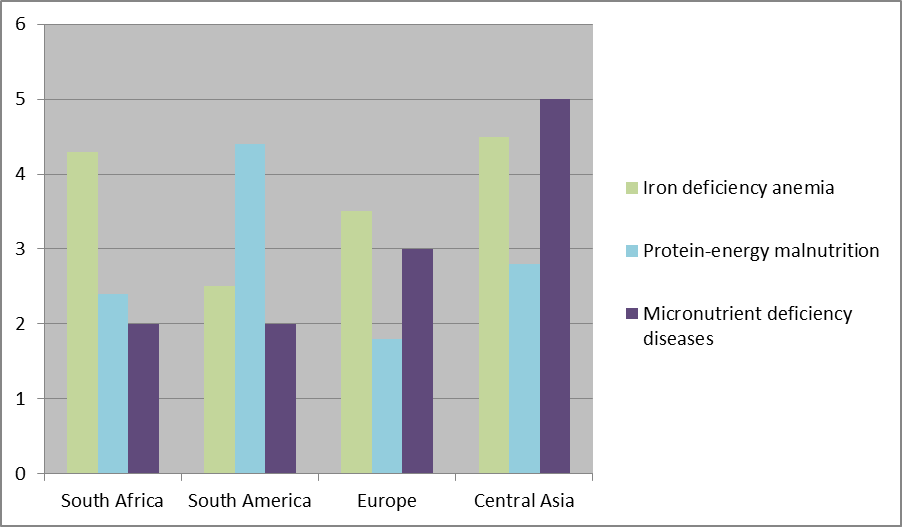
According to epidemiological survey toward the sufficient existence of food and nutrition around the world indicates that the most of the children under the age of 14-10 are most probably suffering from various diseases due to lack of nutrients and are very prone to several diseases under the category of lack of sufficient food and nutrients.
Related Conferences:
15th International Congress on Advances in Natural Medicines, Nutraceuticals & Neurocognition; Berlin, Germany; July 08-09, 2019
23rd World Nutrition & Pediatrics Healthcare Conference; Dubai, UAE; June 17-18, 2019
30th World Congress on Nutrition & Food Sciences; Osaka, Japan; May 17-18, 2019
World Congress on Pediatric Nutrition & Child Health; Paris, France May 13-14, 2019
28th World Congress on Diet, Nutrition and Obesity; Yokohama, Japan; May 20-21, 2019
18th World Congress on Obesity and Nutrition; Bangkok, Thailand; August 15-16, 2019
World Congress on Probiotics, Functional food and Nutraceuticals; Singapore; September 9-10, 2019
3rd International conference on Probiotics, Prebiotics and Synbiotics; Amsterdam, Netherlands; October 23-24, 2019
2nd Annual Meeting on Nutrition & Dietetics; Zagreb, Croatia; November 14-15, 2019
European Society for Paediatric Gastroenterology Hepatology and Nutrition; Scotland, Glasgow; Jun 05-08, 2019
Latin American Society for Pediatric Gastroenterology, Hepatology, and Nutrition Annual Meeting; Mexico, Cancun; Nov 14 -17, 2019
17th International Conference on Nutrition and Fitness; Vienna, Austria; May 23-24, 2019
FNCE 2019 Food & Nutrition Conference & Expo; Philadelphia, USA; October 26-29, 2019
26th World Nutrition Congress; London, UK; June 17-18, 2019
World Congress on Food and Nutrition
Nutri Food 2018 Report
Our sincere thanks to all the speakers and participants of Nutri Food 2018 Conference for their wonderful support.
World Congress on Food and Nutrition Conference which was held during December 10-12, 2018 at Carlton Palace Hotel, Al Maktoum Street, Deira, Dubai, United Arab Emirates with the theme of “Discovering the new advances on food and nutrition for new generation” which got a breath-taking response. With the support of the organizing committee members, editorial board members and impressive presentations of all participants this conference became magnificent. The speakers from different places of the world have given the multiple presentations on the major session like Food, Nutrition and Health, Food Technology, Food Toxicology, Obesity, Diabetes, Cardiovascular Diseases, Gastrointestinal Diseases, Malnutrition and Malnourishment.
Nutri Food 2018 would like to convey the great appreciation to Mohamad Miqdady, from Sheikh Khalifa Medical City, UAE as Keynote speaker and Muhammad Usman, Agricultural Research System, Pakistan for moderating the event and for Keynote speaker.
Nutri Food 2018 would also like to thank the following speakers for their sumptuous presentations on their research.
· Muhammad Usman, Agricultural Research System, Pakistan
· Emil Mukhamejanov, Fucoidan World LLP, Kazakhstan
· Mohamad Miqdady, Sheikh Khalifa Medical City, UAE
· P Hephzibah Christabel, Karpagam University, India
· Bahareh Sotoudeh, Azad university North Theran branch, Iran
· Archana Arora, NU Foods, UAE
· Charlotte Zoeller, Specialist Family Medicine, UAE
With the grand success of the World Congress on Food and Nutrition Conference we are so excited to announce our upcoming event 2nd World Congress on Food and Nutrition conference during October 21-22, 2019 Helsinki, Finland.
Conference Highlights
- Animal & Plant Nutrition
- Clinical Nutrition
- Current Advances in Food Science, Nutrition
- Food & Nutritional Disorders
- Human Nutrition & Dietetics
- Food & Nutritional Immunology
- Nutraceuticals & Medicinal Foods
- Food & Nutritional Metabolomics
- Dietary managements and Nutrition
- Food & Nutritional Toxicology
- Nutritional Epidemiology & Malnutrition
- Food Safety
- Obesity, Diabetes & Endocrinology
- Maternal Nutrition
- Probiotics & Prebiotics Nutrition
- Renal Nutrition & Metabolism
To share your views and research, please click here to register for the Conference.
To Collaborate Scientific Professionals around the World
| Conference Date | January 20-21, 2020 | ||
| Sponsors & Exhibitors |
|
||
| Speaker Opportunity Closed | |||
| Poster Opportunity Closed | Click Here to View | ||
Useful Links
Special Issues
All accepted abstracts will be published in respective Our International Journals.
- Journal of Food Processing & Technology
- Journal of Probiotics & Health
- Journal of Nutrition & Food Sciences
Abstracts will be provided with Digital Object Identifier by



